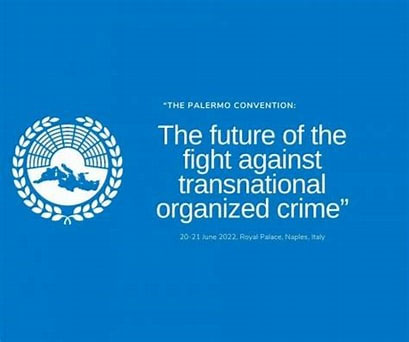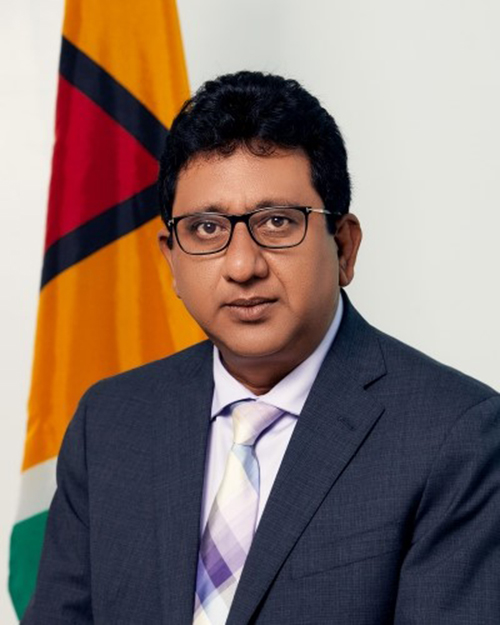Against the backdrop of an increased focus among governments in the region on concerns relating to organized crime, Guyana’s Attorney General, Anil Nandlall, met recently with a delegation from the Europe-Latin America Programme of Assistance against Transnational Organized Crime, (TOC) according to a Tuesday May 14 Department of Public Information (DPI) report. The visit here took place in the face of mounting international concerns regarding what is widely believed to be strong connections between businesses and organized crime, globally.
The DPI report states that Nandlall met with a visiting delegation, charged with providing assistance to governments seeking to roll back or guard against the proliferation of transnational organized crime, as a means through which to contribute to security and justice in Latin America and the Caribbean. The visit marks an indication of likely concern that transnational organized crime which is already believed to be widespread in Latin America, if not robustly guarded against, could prove to be a menace to Guyana on the back of the country’s now anticipated oil driven growth and investment pursuits.
 A recent report by the United States National Security Council has asserted that Transnational Organized Crime “poses a significant and growing threat to national and international security, with dire implications for public safety, public health, democratic institutions, and economic stability across the globe. Not only are criminal networks expanding, but they also are diversifying their activities, resulting in the convergence of threats that were once distinct and today have explosive and destabilizing effects. This Strategy organizes the United States to combat TOC networks that pose a strategic threat to Americans and to U.S. interests in key regions,” the Report adds.
A recent report by the United States National Security Council has asserted that Transnational Organized Crime “poses a significant and growing threat to national and international security, with dire implications for public safety, public health, democratic institutions, and economic stability across the globe. Not only are criminal networks expanding, but they also are diversifying their activities, resulting in the convergence of threats that were once distinct and today have explosive and destabilizing effects. This Strategy organizes the United States to combat TOC networks that pose a strategic threat to Americans and to U.S. interests in key regions,” the Report adds.
The message to a vulnerable Caribbean contained in this utterance is unmistakable. It makes reference to manifestations that might include “penetration of State Institutions, corruption, and threats to governance,” asserting that “developing countries with weak rule of law can be particularly susceptible.” Worryingly, the report makes reference to an “apparent growing nexus” in some states among “groups and elements of government, including intelligence services and high-level business figures” which it says “represents a significant threat to economic growth and democratic institutions.”
The report also tags weak points in “countries with weak governance,” including “corrupt officials who turn a blind eye to Transnational Organized Crime activity”. TOC networks, the report says, “insinuate themselves into the political process in a variety of ways. This is often accomplished through direct bribery (but also by having members run for office); setting up shadow economies; infiltrating financial and security sectors through coercion or corruption; and positioning themselves as alternate providers of governance, security, services, and livelihoods. As they expand, TOC networks may threaten stability and undermine free markets as they build alliances with political leaders, financial institutions, law enforcement, foreign intelligence, and security agencies. TOC penetration of governments is exacerbating corruption and undermining governance, rule of law, judicial systems, free press, democratic institution-building, and transparency,” the Report adds. The DPI report on the visit here by the so-called El Paccio team reported that accompanying the Attorney General to the meeting were Assistant Solicitor-General, Shoshana Lall, and AML/CFT officer, Rommel St. Hill.






